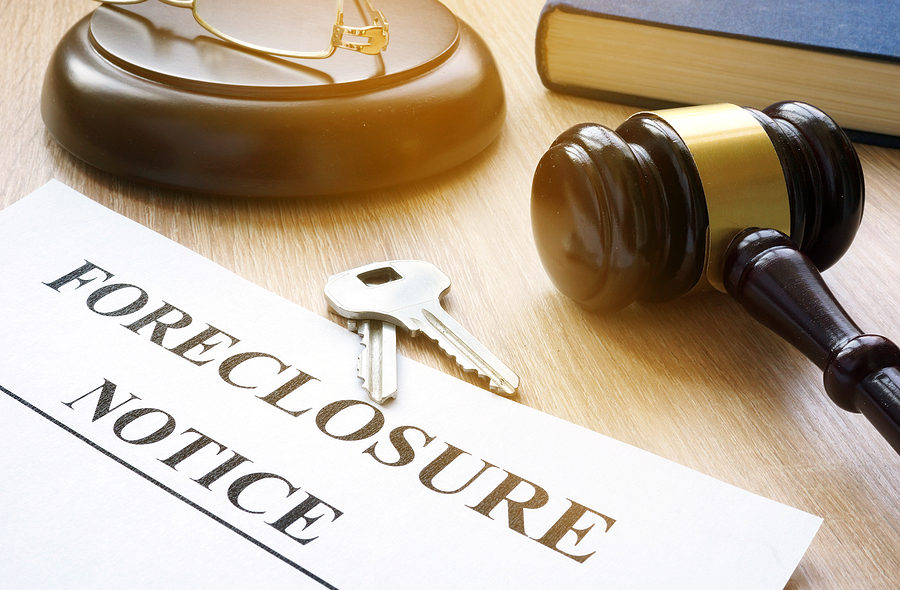Foreclosure is a process most homeowners want to avoid. After all, no one wants to lose their home. Florida has what is called a ‘judicial foreclosure process’, meaning the homeowner is entitled to a hearing before the court to determine whether or not the bank has the right to foreclose.
Pre-foreclosure
The period after the homeowner misses mortgage payments but just before foreclosure officially begins, is known as the “pre-foreclosure” stage. During pre-foreclosure, the mortgage service provider will likely add fees to the outstanding balance, including late fees and inspection fees. Mortgage providers are entitled to conduct inspections of the property when payments are missed to ensure that the property is still occupied and in good shape. They must also communicate with the homeowner about the possibility of foreclosure, and this communication comes in the form of a pre-foreclosure letter or breach letter. The breach letter must inform the homeowner that his or her loan is in default and must give the homeowner the chance to cure the default and prevent foreclosure.
Foreclosure Protection or Mitigation Strategies
If the mortgage on the property is one that is federally serviced, and the property is the owner’s principal residence, the service is required by law to contact him or her to discuss loss mitigation options. This initial communication must be done by telephone no later than 36 days after the missed payment. This communication must also be done in writing no later than 45 days after the missed payment.
In this communication, the servicer should discuss the possibility of loan modification, forbearance, or repayment plans. Federal mortgage servicing laws also prohibit what is called “dual tracking.” Dual tracking means the servicer is pursuing foreclosure while still working with the homeowner on loss mitigation.
When Can Foreclosure Start?
Foreclosure cannot start until the homeowner is more than 120 days past due on his or her payments. The purpose of this length of time is to give the homeowner time to submit a loss mitigation application before the foreclosure process begins.
Florida’s Foreclosure Process
Whenever a Florida homeowner defaults on his or her mortgage payments, the foreclosure process is judicial. A judicial foreclosure proceeding begins when the lender files a legal petition, asking the court for an order to allow them to hold a foreclosure sale. Once that petition is filed, the homeowner usually gets 20 days to formally respond with the court. If the homeowner fails to respond, the lender has the legal right to file for a default judgment. If the homeowner does not file an answer in court, the lender will likely receive that default judgment, speeding up the process.
After an answer is filed by the homeowner, the lender may request the court grant them summary judgment. This type of judgments is granted when there is no dispute about the critical aspects of the case, mainly that the homeowner defaulted on the mortgage obligation. If summary judgment is granted or if the homeowner loses at trial, the court will enter a judgment and order that the home be sold at auction.
Foreclosure Mediation
The Florida Supreme Court issued an order in 2009, requiring state circuit courts to implement a statewide uniform mediation program. However, this program was terminated in 2011, so mediation is not required for all foreclosure cases. This fact does not mean the judge cannot refer foreclosure lawsuits to mediation if they believe it is warranted. In fact, many cases are referred to mediation on a case-by-case basis.
The Foreclosure Sale
Before the home can be sold, the lender must public notice of the foreclosure sale in a newspaper once a week for two consecutive weeks. The second publication must be made at least five days prior to the sale.
The sale of the home must occur 20 to 35 days after the court entered its judgment, less the court ordered otherwise. Since the sale of the home is an auction, it is open to the public. Many times, the lender is the winning bidder at these auctions. They will normally make what is called a credit bid, which means the lender bid up to the total amount owed, including fees and costs. Occasionally, they may bid below that value. If the lender is the highest bidder, but the bid is less than the total debt, the borrower will be responsible for the difference, known as a deficiency judgment. If the winning bid is above the amount owed, the homeowner is entitled to any surplus received.
Once the sale occurs, the court clerk must file a certificate of sale. If no objections are filed after the certificate of sale is filed, the clerk will confirm the sale and issue a certificate of title to the purchaser.
When Does the Homeowner Vacate the Home?
Many times, the homeowner has already left the property by the time the auction occurs. However, if the homeowner is still in the property, after the clerk files the certificate of title, the lender or winning bidder can file a motion for a writ of possession, forcing the homeowner to evacuate and giving possession to the new property owner. Once this motion is granted by the court, and the clerk issues the writ, a sheriff will then execute it and will make the person or persons evacuate the property.
Remember: In Florida, the homeowner has rights when it comes to foreclosure! But do not delay.
Choosing the right attorney can make the difference between keeping your home or losing it in foreclosure. A well-qualified Miami foreclosure defense attorney will not only help you keep your home, but they will be able to negotiate a loan that has payments you can afford. Miami foreclosure defense attorney Timothy Kingcade has helped many facing foreclosure alleviate their stress by letting them stay in their homes for at least another year, allowing them to re-organize their lives. If you have any questions on the topic of foreclosure, please feel free to contact me at (305) 285-9100. You can also find useful consumer information on the Kingcade Garcia McMaken website at www.miamibankruptcy.com.


